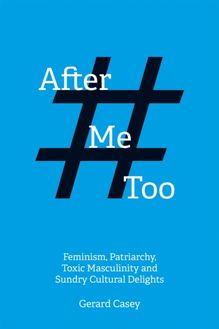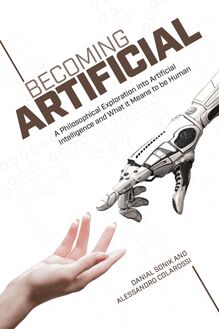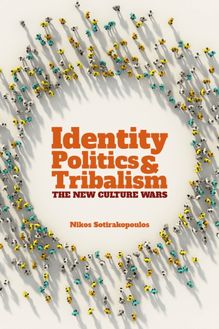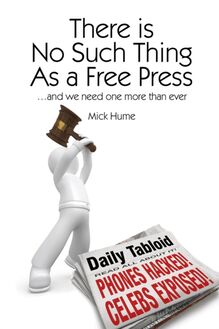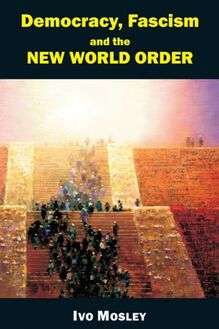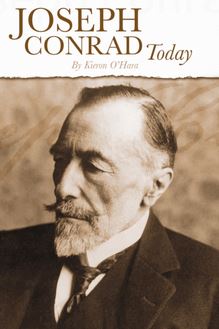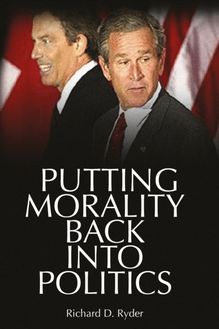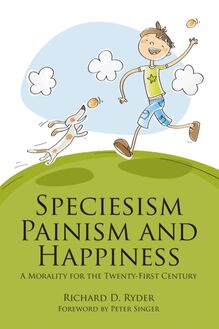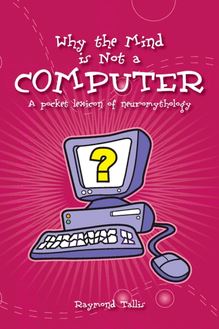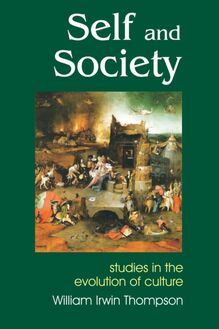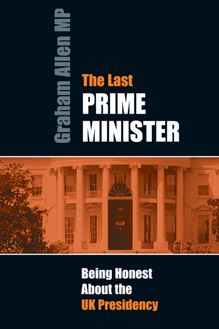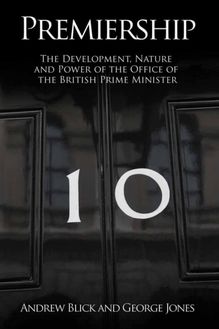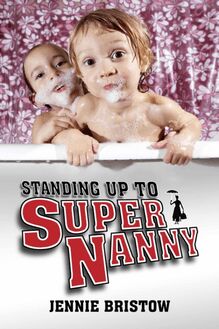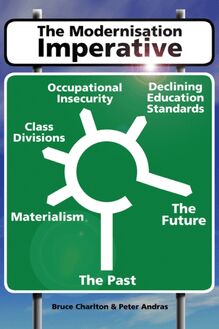-
 Univers
Univers
-
 Ebooks
Ebooks
-
 Livres audio
Livres audio
-
 Presse
Presse
-
 Podcasts
Podcasts
-
 BD
BD
-
 Documents
Documents
-
- Cours
- Révisions
- Ressources pédagogiques
- Sciences de l’éducation
- Manuels scolaires
- Langues
- Travaux de classe
- Annales de BEP
- Etudes supérieures
- Maternelle et primaire
- Fiches de lecture
- Orientation scolaire
- Méthodologie
- Corrigés de devoir
- Annales d’examens et concours
- Annales du bac
- Annales du brevet
- Rapports de stage
La lecture à portée de main
Vous pourrez modifier la taille du texte de cet ouvrage
Découvre YouScribe en t'inscrivant gratuitement
Je m'inscrisDécouvre YouScribe en t'inscrivant gratuitement
Je m'inscrisEn savoir plus
Vous pourrez modifier la taille du texte de cet ouvrage
En savoir plus

Description
Sujets
Informations
| Publié par | Andrews UK |
| Date de parution | 20 janvier 2021 |
| Nombre de lectures | 0 |
| EAN13 | 9781845409876 |
| Langue | English |
Informations légales : prix de location à la page 0,0550€. Cette information est donnée uniquement à titre indicatif conformément à la législation en vigueur.
Extrait
THE TRIBE
THE LIBERAL-LEFT AND THE SYSTEM OF DIVERSITY
Ben Cobley
SOCIETAS
essays in political
& cultural criticism
imprint-academic.com
Publisher Information
2018 digital version converted and published by
Andrews UK Limited
www.andrewsuk.com
Copyright © 2018 Ben Cobley
The moral rights of the authors have been asserted.
No part of this publication may be reproduced in any form without permission, except for the quotation of brief passages in criticism and discussion.
Acknowledgement is gratefully made for permission to reproduce extracts of Karl Popper’s The Open Society and Its Enemies © 2008 University of Klagenfurt/Karl Popper Library.
Imprint Academic, PO Box 200, Exeter EX5 5YX, UK
For Jenny, Peter and Cathy
“The machine-like condition of modern humans may seem a limitation. In fact it is a condition of their survival.” [1]
—John Gray
1 John Gray, The Silence of Animals: On Progress and Other Modern Myths (Allen Lane, 2013), p. 6.
Preface
When I set out on this book, my aim was to show how liberal-left politics has been consumed by the politics of identity and detail some of the damage it is doing. But in working on it I started to see the connections and recognise how the patterns of behaviour fit into wider contexts. Especially, I started to see the patterns of call and response in which individual members make calls to the wider group and to allies, anticipating a certain response which they generally receive (depending on how well connected and attuned they are). This is politics in its most basic form. The call and response gathers ‘the Tribe’ of our title in, mobilising it each day to renew the fight against its enemies and maintain its identity. The material I use to show this will be quite familiar for the most part, but I have tried to treat it as unfamiliar: to show how strange but also how banal it is—by exploring how it works and especially how it fits in .
Before I go any further, I should probably explain what I mean by ‘the liberal-left’, or ‘progressive liberal-left’ in its longer title. I think it helps to think in terms of ‘worlds’; that, just as we can be ‘in a world of our own’ at any point in time, so most of us most of the time are not. We live in shared worlds, with shared language, shared understandings, customs, beliefs and possibilities. Also, the world we live in is not the whole world. There are many worlds, their horizons are all limited and they are constantly banging up against one another, intersecting and interlocking, confronting and competing against one another.
As I write it in this book, the ‘system of diversity’ is the world occupied by the liberal-left. It is a world in which identity appears to matter more than anything else. This identity appears to be fixed. It is based upon aspects of ourselves that appear to be unquestionable, like our skin colour, ethnicity, gender, sexuality and religion (in the case of Islam). It fixes our place in the world, helping to prescribe the sort of roles we can take on: as members of victim and/or oppressor groups, as representatives of victim groups, and lastly as the people who make space for these roles in the wider public sphere.
The liberal-left ‘tribe’ is the latter group. It oversees the system of diversity, offering possibilities for victim groups to break the barriers of white-skinned, male-dominated power. Many members of this group are male, and even more have white skin. Sometimes, it appears as if they are atoning for a sort of original sin brought on by their identities. In doing so, they appear as a bit liberal and a bit left-wing. They are liberal in the sense that their favoured groups are groups whose causes liberals took up in the past. John Stuart Mill as the quintessential liberal campaigned for women to have the vote many years before they got it. Roy Jenkins as Labour Home Secretary in the 1960s liberalised laws on abortion, divorce, homosexuality, censorship, race relations and immigration.
These causes, together with real disadvantages suffered by the groups involved, affiliated liberals and left-wingers to these groups and established a model for relationships between them which endured after their initial causes had been won. The liberal-left was born out of this process, coming to direct both its leftism and its liberalism selectively, towards its favoured identity groups. To its unfavoured groups it now appears distinctly authoritarian rather than liberal: constantly intervening, clamping down and curtailing possibilities.
The liberal-left is what it is when it is sharing this world of favoured and unfavoured identity groups. But when its members concern themselves with other things, they melt away into those things. The tribe comes together in order to defend its territory, which is the system of diversity.
In this book, I aim to show how this system works as a system and how its problems are the problems that systems have—of reproducing the same behaviours over and over again, in whatever circumstances; of squeezing out the distinctively human, relational and ethical aspects of life; of integrating us into a sort of machine. My approach is critical and I focus mostly on the negatives. But there are positive aspects too. The system has provided a framework that has helped to more or less eliminate traditional forms of racism and sexism from our public sphere (albeit with a considerable amount of ‘concept creep’). Also, the system offers belonging. Integrating into it means fitting in, being part of something, being accepted and approved in public life. Indeed, in a sense the system is itself a form of society, for it brings people together and gives us a way of relating to each other. This has its own value, not least when the same progressive politics is combining with globalisation to overturn old values and ways of life.
Also, I am not arguing that diversity is a bad thing in itself. Part of our problem with diversity is that it carries different meanings. In strict terms, the word ‘diversity’ describes a state of variation, but the politics of diversity places restrictions on who we are, what we can do and what we are allowed to say. The confusion arising from this creates a problem for anyone questioning the politics of diversity, since doing so can easily be made to appear as an attack on the groups that the system of diversity favours, or on the idea of variation. This is part of a more general tendency within the system to appropriate and manipulate language for political purposes, which I explore in Chapter 7.
My intention has not been to write a history, to pick out ‘root causes’, or to nail the original thinkers whose theories have helped get us to this point (though there is a little bit of that at the end). I rather wanted to look at how the liberal-left operates on a daily basis, through the voices of its major figures, in the words of its activists and supporters, and through the practices of ‘institutions of diversity’ like the Labour Party, the Guardian and the BBC. I critique what is said and done, sometimes forcibly. However, the point is not to blame individuals but to extract examples of typical, customary practices—and show how they fit together.
The sheer weight of material arising in our public sphere every day makes it impossible to give a complete picture. Because of this, I have deliberately narrowed my focus to Britain. I have also narrowed down to how liberal-left politics aligns with certain, prominent forms of identity politics, notably feminism, Islamism and the politics of mass immigration. This means that some aspects of contemporary identity politics, including Scottish nationalism and the transgender rights movement, do not feature much here. Many other fascinating topics also remain to be explored, including the interaction of black culture with the system and how personal relationships are being affected by it.
I have many people to thank for getting the book to this stage. My family deserves special thanks for keeping some faith even when there seemed to be no faith worth keeping. I have also received much welcome and valuable support from the following: Timandra Harkness, Tamara Chabe, Susan Masters, Daniel Bentley, Claire Fox, Cathy Cobley, Toby Mundy, David Goodhart, Helena Little, Wendy Earle, Mel Stride, Paul McLaughlin, Amy Parker and Barry and Carol Roberts. I also owe a special debt to the late Professor Hubert Dreyfus for making his Berkeley lectures available for free via podcast, which have helped me formulate my language and arguments. Lastly, I would like to thank those who I follow on Twitter, and others, for highlighting an inexhaustible stream of material on contemporary identity politics and for the discussions which have helped develop my thoughts. There are far too many to list, and I do not know the proper names of many, but thanks to all.
Introduction: Identity Politics and the Liberal-Left
Tribes and in-groups are a fact of life. There is nothing inherently wrong with them or anything that should be done to get rid of them. Collective life has its own justification—to be together and through that to survive and prosper now and into the future.
However, some groups are mutually exclusive. Being part of one group means not being part of others. As a white man I am naturally excluded from women’s or Black and Minority Ethnic (BAME) groups: this is how it works. Being a Labour Party member means not being a Conservative or UKIP or Liberal Democrat or Green member. For groups to have any meaning they must exclude people as well as include them: this is what defines those groups as what they are and not something else. For there to be insiders, there also need
-
 Univers
Univers
-
 Ebooks
Ebooks
-
 Livres audio
Livres audio
-
 Presse
Presse
-
 Podcasts
Podcasts
-
 BD
BD
-
 Documents
Documents
-
Jeunesse
-
Littérature
-
Ressources professionnelles
-
Santé et bien-être
-
Savoirs
-
Education
-
Loisirs et hobbies
-
Art, musique et cinéma
-
Actualité et débat de société
-
Jeunesse
-
Littérature
-
Ressources professionnelles
-
Santé et bien-être
-
Savoirs
-
Education
-
Loisirs et hobbies
-
Art, musique et cinéma
-
Actualité et débat de société
-
Actualités
-
Lifestyle
-
Presse jeunesse
-
Presse professionnelle
-
Pratique
-
Presse sportive
-
Presse internationale
-
Culture & Médias
-
Action et Aventures
-
Science-fiction et Fantasy
-
Société
-
Jeunesse
-
Littérature
-
Ressources professionnelles
-
Santé et bien-être
-
Savoirs
-
Education
-
Loisirs et hobbies
-
Art, musique et cinéma
-
Actualité et débat de société
- Cours
- Révisions
- Ressources pédagogiques
- Sciences de l’éducation
- Manuels scolaires
- Langues
- Travaux de classe
- Annales de BEP
- Etudes supérieures
- Maternelle et primaire
- Fiches de lecture
- Orientation scolaire
- Méthodologie
- Corrigés de devoir
- Annales d’examens et concours
- Annales du bac
- Annales du brevet
- Rapports de stage
